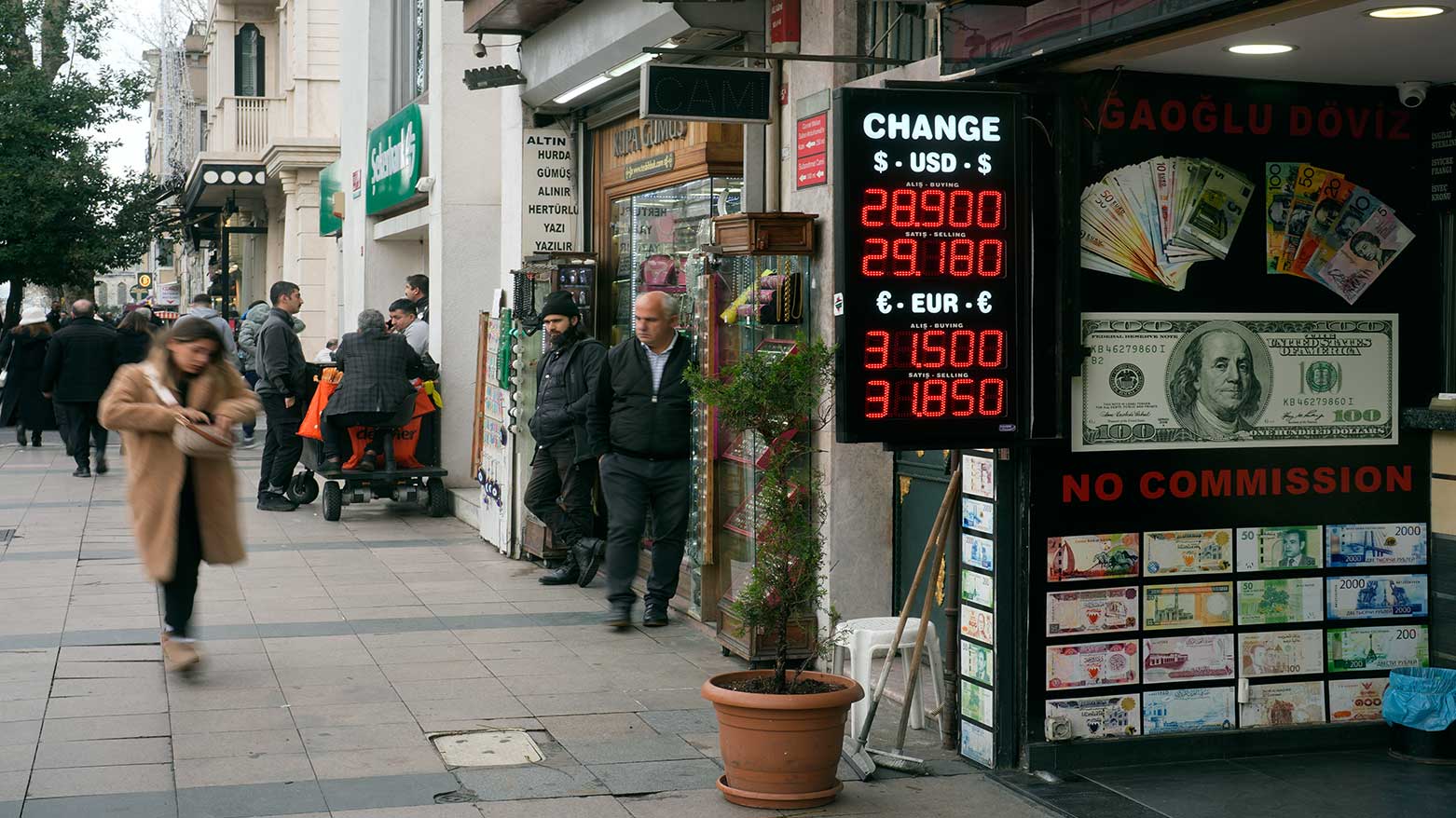Turkish Inflation Falls to Lowest Level Since 2021, Raising Hopes for Interest Rate Cuts
Erdoğan’s ability to maintain a stable and transactional relationship with Trump has created a more predictable external environment, allowing Turkish policymakers to focus on domestic stabilization measures without the overhang of sudden punitive actions from Washington.

ERBIL (Kurdistan24) — Türkiye’s annual inflation dropped to 35.4 percent in May, marking its lowest level since November 2021, official data showed Tuesday, according to Agence France-Presse (AFP). The decline extends a 12-month trend of easing consumer prices, signaling growing optimism for a potential interest rate cut by the central bank.
Inflation had previously soared to a staggering 75 percent in May 2023, driven by economic instability, currency depreciation, and policy uncertainty. The latest figures suggest the Central Bank of the Republic of Türkiye (CBRT) may soon be in a position to pivot from its aggressive monetary tightening.
In April, the CBRT raised its benchmark interest rate to 46 percent amid market turbulence and mounting political pressure following the controversial arrest of Istanbul’s opposition mayor. The move also responded to the Turkish lira’s steep decline against the US dollar and broader uncertainties linked to global trade tensions, including tariffs imposed during the Trump administration.
London-based Capital Economics noted that the drop in inflation could prompt the CBRT to act sooner than expected. “The larger-than-expected fall in Turkish inflation in May, to 35.4%, will increase the CBRT's confidence that it can restart its easing cycle soon,” said Nicholas Farr, the firm’s emerging Europe economist. “While we had thought the easing cycle would resume in Q3, a rate cut this month is now not out of the question.”
Despite the official figures, some skepticism remains. The ENAG group, an independent team of Turkish economists, estimated May’s inflation at a significantly higher 71.2 percent, underlining concerns about the transparency and accuracy of government-reported data.
Still, if inflation continues to decline, economists believe the CBRT could begin a gradual reduction in interest rates to support economic growth, especially as Turkey seeks to stabilize ahead of upcoming municipal elections and revive investor confidence in its markets.
Erdoğan-Trump Ties Provide Diplomatic Cushion in Türkiye’s Inflation Fight
Turkish President Recep Tayyip Erdoğan’s close rapport with U.S. President Donald Trump may be playing a subtle yet significant role in supporting Türkiye’s efforts to curb inflation. Their strengthened political alignment has helped ease geopolitical tensions that, under different leadership, might have triggered economic disruptions such as sanctions, tariffs, or capital flight — all of which would have compounded inflationary pressures in Türkiye.
Erdoğan’s ability to maintain a stable and transactional relationship with Trump has created a more predictable external environment, allowing Turkish policymakers to focus on domestic stabilization measures without the overhang of sudden punitive actions from Washington.
This diplomatic buffer likely bolstered investor confidence, helped moderate volatility in the Turkish lira, and contributed—albeit indirectly—to the broader environment in which inflation could fall for 12 consecutive months. In a country where inflation is highly sensitive to external shocks, even slight improvements in international relations can provide critical breathing room for macroeconomic recovery.
